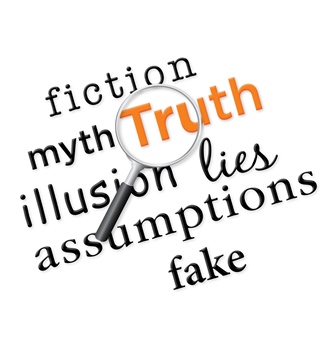
Some scientists say yes, and the explanation is rooted in the evolution of our species. As human beings evolved, so did the brain's capacity to facilitate motor skills and other tasks through what is known as implicit memory. This type of memory is exhaustively explained by Daniel Schacter (author of "The Seven Sins of Memory" - Mariner Books, 2001) in a critical review written for the Journal of Experimental Psychology in 1982. Schacter explains that implicit memory is that which can aid in the performance of a task without conscious knowledge.
The implicit memory is there but we have no readily accessible association. In other words, we can't remember why we know something, such as a familiar face, it's just one of many hidden sparks that cause us to behave in a particular way. In everyday encounters we don't actively try to recall the memory, but something about the situation or person before us is unconsciously familiar and therefore trustworthy.
Daniel Shacter asserts the key attribute of the implicit memory phenomenon is the "absence of a conscious recollection of a prior experience" (page 158). This is important in terms of behavioral biases because it at least partially explains intuitive actions and snap judgments.
The other side of the memory coin is explicit memory, which is employed when we make a purposeful effort to remember something such as the name of our fifth grade homeroom teacher. On the other hand, implicit memory is what's behind our tendency to trust those who look similar to us, or look similar to someone from our past. We lend more credibility to familiar things or experiences, even if we're not aware of it. It's a handy capacity. Implicit memory makes everyday life function more fluidly.
As we developed into a higher-order being, implicit memory helped us to become more proficient at tasks and process ideas more efficiently. It helped us do repetitive tasks without having to re-learn them. This innate ability helped humans learn new processes which had some connection, visually or kinetically, to something seen or done previously. Without implicit memory, the learning of new ideas would be a constant source of frustration. But there's a downside.
Implicit memory can lead to a cognitive bias called the Illusion of Truth or The Truth Effect, which essentially asserts that we tend to believe something as true if we've heard or seen it before, even if there is no evidence to support its actual veracity. The irony is this; our implicit, subconscious capacity to accept the truth of a situation without conscious deliberation - the square peg goes in the square hole - also carries with it the unintended consequence of believing something to be true, simply because we've seen it before.
In one research experiment participants were asked to read 60 plausible statements, some true - some not. They were to rate them based on their validity. A few of those statements were presented more than once in different sessions. Results showed that participants were more likely to rate as true those statements they had previously heard, regardless of the veracity of the statement. This was the case regardless of whether the participant had a conscious recollection of the statement or not. You can read about the study here https://uwaterloo.ca/reasoning-decision-making-lab/sites/ca.reasoning-decision-making-lab/files/uploads/files/OzubkoFugelsang_11.pdf
The study concluded, "Using a method to indirectly poll the perceived truth of factual statements, our experiment demonstrated that information retrieved from memory does indeed give rise to an illusion of truth." (Hasher, Goldstein, & Toppino, 1977).
The illusion of truth, or the truth effect, is another tool for your belt. It's there to help you realize we all possess cognitive biases in varying degrees. Knowing they exist can help you take that extra breath and think about why you are placing your trust in a situation.
Here's something to ponder: “Everything we hear is an opinion, not a fact. Everything we see is a perspective, not the truth.” ―Marcus Aurelius,Meditations

